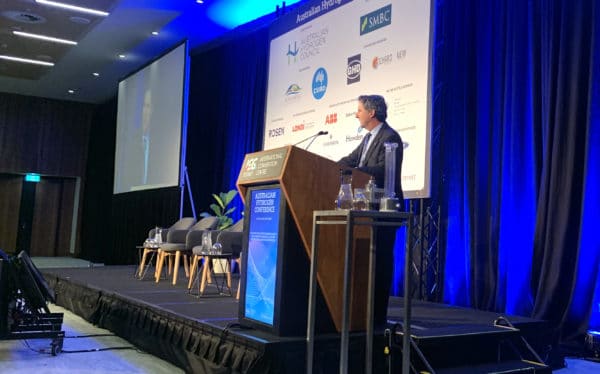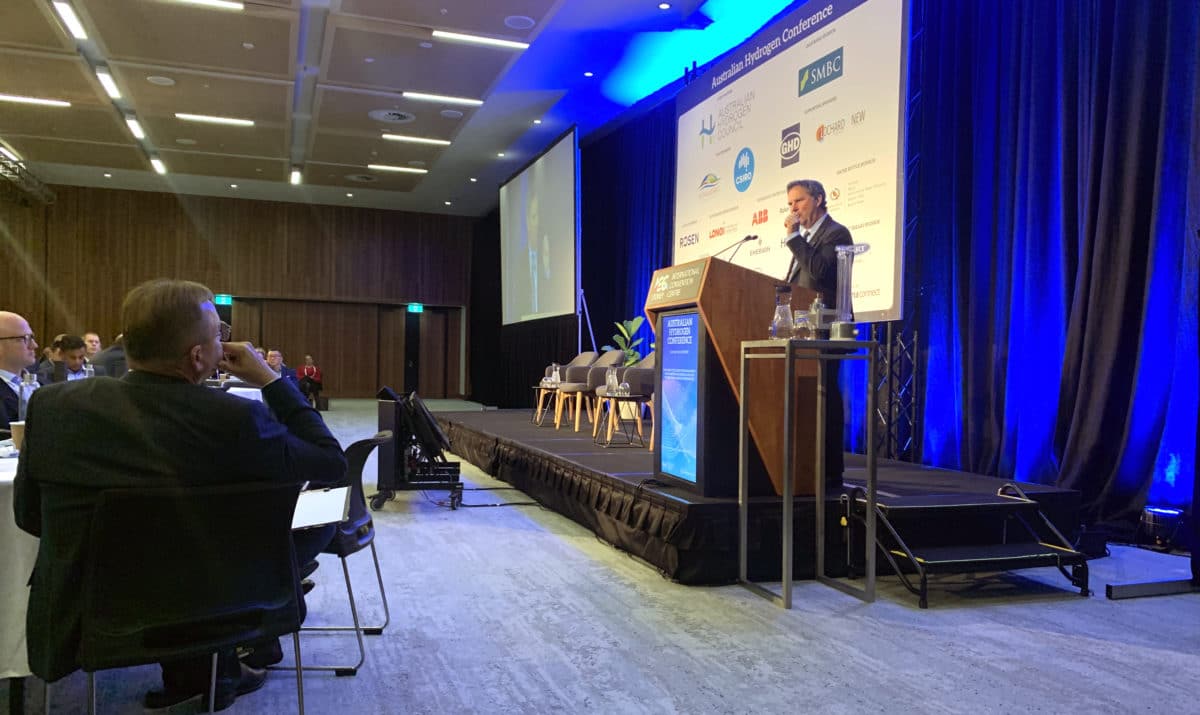Speaking at the Australian Hydrogen Conference held Wednesday and Thursday in Sydney, Larry Marshall, Chief Executive of the CSIRO, said the collaboration he’s witnessing around hydrogen is of a level “which Australia really hasn’t seen before.”
On Wednesday, the CSIRO launched its new $68 million Hydrogen Industry Mission (Mission) with the aim of driving the cost of hydrogen production to under $2 per kilogram to get Australia in the driver’s seat of the global hydrogen economy by 2030. Marshall said the Mission builds on decade of research conducted by the CSIRO and its partners.
Since taking the helm of the CSIRO, Marshall said he had “doubled then doubled again” the nation science agency’s hydrogen investments.
Coinciding with this journey towards hydrogen, Marshall said the CSIRO had also greatly expanded its partnerships, doubling the number of industry and research partners it has in the last five years. Today the CSIRO is working with about 3000 parters, he said.
Together with these partners, the CSIRO is now working on over 100 projects which Marshall said are “aimed at showing that a breakthrough is possible in areas previously thought to be show-stoppers for hydrogen.”

Bella Peacock
Without “giving away the game,” Marshall said some of the agency’s current endeavours include trying to create hydrogen and ammonia under ambient temperature and pressure. There is also a strong alliance between hydrogen research and agricultural food teams happening at the agency, with the potential to “revolutionise” agriculture.
“Solving the seemingly impossible with science harnesses every single branch of science and engineering and technology that your national science agency has,” Marshall said. “It reaches from artificial intelligence to predict the right alloys to mix to enable the hydrogen cracker, to social science to predict human behaviour and how we might more rapidly drive the change, and every branch of physical science, engineering and technology in between.”
‘Industry needs fuel’
Marshall said hydrogen holds particular promise as, in his experience, changing behaviour is one of the hardest parts of new technology uptake. Since hydrogen is a physical substance which can works as a fuel, he described it as having a significant leg up on this front.
The CSIRO, Marshall said, had worked with aviation giant Boeing on its National Hydrogen Roadmap, which is an industry for which hydrogen holds great potential. “Industry needs fuel,” Marshall said.
Marshall sees hydrogen as supplementing aviation fuel by 2035, and replacing it entirely by 2050.
This content is protected by copyright and may not be reused. If you want to cooperate with us and would like to reuse some of our content, please contact: editors@pv-magazine.com.









By submitting this form you agree to pv magazine using your data for the purposes of publishing your comment.
Your personal data will only be disclosed or otherwise transmitted to third parties for the purposes of spam filtering or if this is necessary for technical maintenance of the website. Any other transfer to third parties will not take place unless this is justified on the basis of applicable data protection regulations or if pv magazine is legally obliged to do so.
You may revoke this consent at any time with effect for the future, in which case your personal data will be deleted immediately. Otherwise, your data will be deleted if pv magazine has processed your request or the purpose of data storage is fulfilled.
Further information on data privacy can be found in our Data Protection Policy.